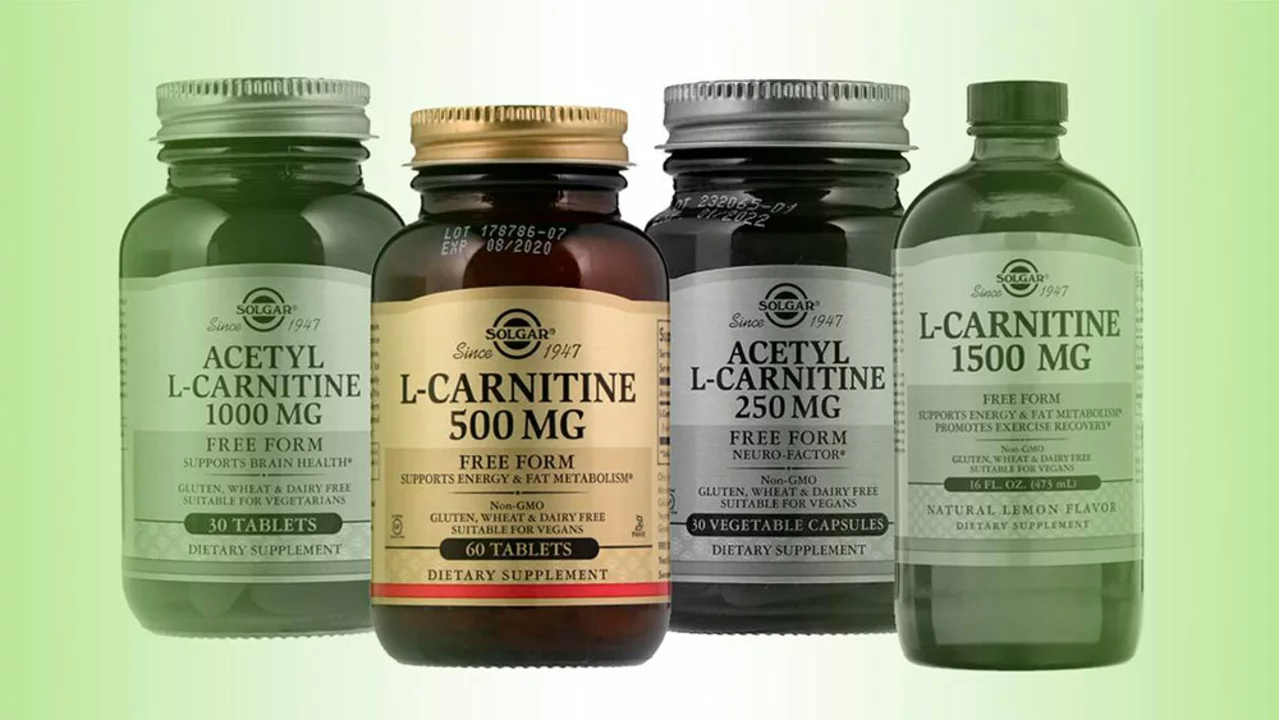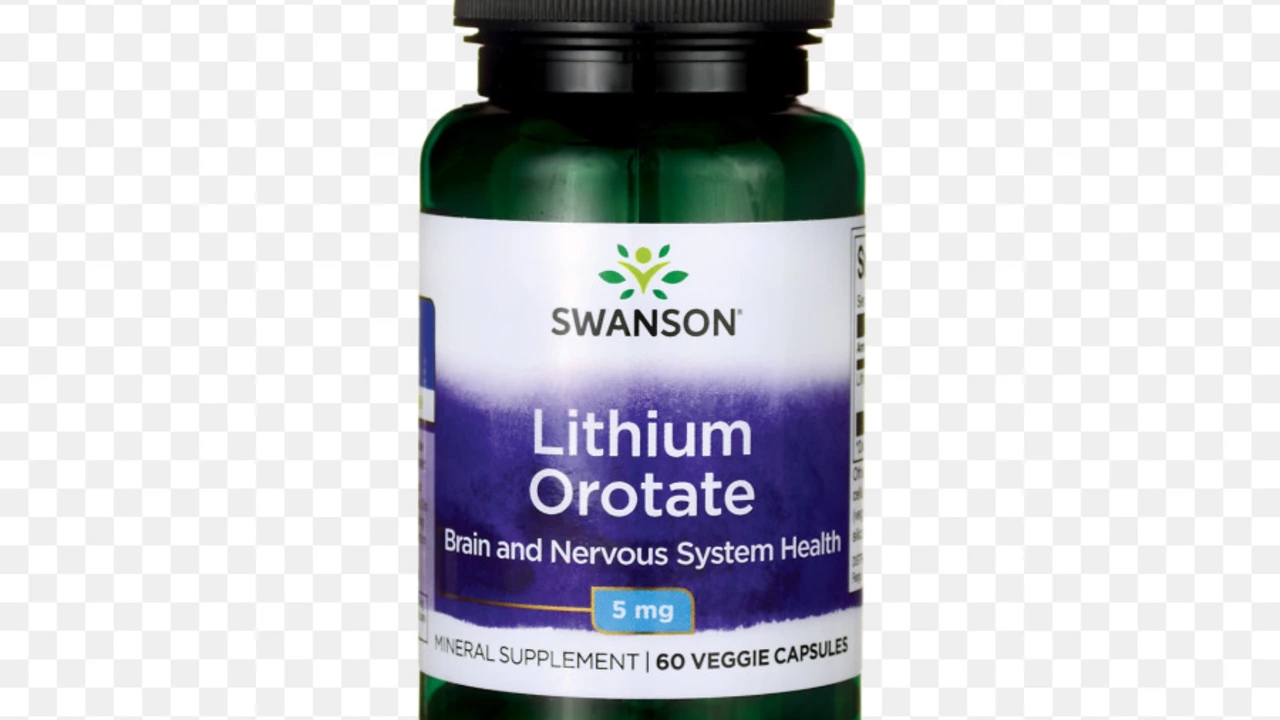Introduction: Acetyl-L-Carnitine and Its Benefits
As a health-conscious individual, I'm always looking for ways to improve my overall well-being. One of the ways I do this is by incorporating foods rich in essential nutrients that can benefit my body's functions. One such nutrient is acetyl-L-carnitine, which is a derivative of the amino acid L-carnitine. Acetyl-L-carnitine is known for its ability to promote brain health, support energy production, and help maintain a healthy nervous system. In this article, I'll be sharing the top 10 foods rich in acetyl-L-carnitine for you to consider incorporating into your diet.
The Importance of Animal Products
When it comes to acetyl-L-carnitine, many of the best sources are found in animal products. This is because L-carnitine is primarily found in meat and converted into acetyl-L-carnitine in our bodies. While it is possible for vegetarians and vegans to enjoy some of the benefits of acetyl-L-carnitine through plant-based sources, it's essential to recognize that animal products provide the most significant amounts. With that in mind, let's explore some of the top animal-based sources of acetyl-L-carnitine.
Beef: A Powerhouse of Acetyl-L-Carnitine
Beef is an excellent source of acetyl-L-carnitine, with a 4-ounce serving providing around 56-162 mg of L-carnitine, which our bodies can convert into acetyl-L-carnitine. Beef is also rich in other essential nutrients like protein, iron, and vitamin B12. When choosing beef, opt for lean cuts and grass-fed varieties to maximize the nutritional benefits and minimize the intake of unhealthy fats.
Pork: Another Great Option for Acetyl-L-Carnitine
Pork is another meat that provides a significant amount of acetyl-L-carnitine. A 4-ounce serving of pork can contain between 24-80 mg of L-carnitine. Similar to beef, pork is also rich in protein, iron, and vitamin B12. When choosing pork, select lean cuts like tenderloin or loin chops to minimize unhealthy fat consumption.
Chicken: A Lean Source of Acetyl-L-Carnitine
Chicken is a popular and lean source of acetyl-L-carnitine, with a 4-ounce serving providing around 3-5 mg of L-carnitine. Although chicken contains less acetyl-L-carnitine compared to beef and pork, it is still a valuable source, especially for those looking to reduce their red meat intake. Opt for skinless, boneless chicken breast for the healthiest option.
Fish: A Heart-Healthy Acetyl-L-Carnitine Source
Fish is not only an excellent source of heart-healthy omega-3 fatty acids, but it also provides a good amount of acetyl-L-carnitine. A 4-ounce serving of fish like salmon, tuna, or mackerel can provide between 4-16 mg of L-carnitine. Including fish in your diet is a delicious and healthy way to boost your acetyl-L-carnitine intake.
Exploring Dairy Products
Dairy products are another group of foods that can provide acetyl-L-carnitine. While the amounts may not be as high as those found in meat, dairy can still be a valuable source, especially for vegetarians. Let's take a look at some of the best dairy options for acetyl-L-carnitine.
Milk: A Nutrient-Dense Beverage
Milk is not only an excellent source of calcium and vitamin D, but it also provides a modest amount of acetyl-L-carnitine. An 8-ounce glass of milk can contain around 8 mg of L-carnitine. Drinking milk regularly can contribute to your overall acetyl-L-carnitine intake while also supporting bone health.
Cheese: A Tasty Source of Acetyl-L-Carnitine
Cheese is another dairy product that contains acetyl-L-carnitine. While the amount varies depending on the type of cheese, a 2-ounce serving can provide between 2-5 mg of L-carnitine. Cheese is also a good source of protein and calcium, making it a nutritious and delicious addition to your diet. Opt for low-fat varieties to minimize unhealthy fat intake.
Plant-Based Sources of Acetyl-L-Carnitine
While animal products provide the highest amounts of acetyl-L-carnitine, some plant-based foods contain small amounts of L-carnitine or compounds that can help our bodies produce it. Let's explore some of the top plant-based sources of acetyl-L-carnitine for vegetarians and vegans.
Whole Grains: A Staple for Plant-Based Diets
Whole grains like quinoa, brown rice, and whole wheat bread contain small amounts of L-carnitine, with around 0.2-0.8 mg per serving. Although the levels are much lower than in animal products, whole grains are still an essential part of a balanced plant-based diet, providing fiber, vitamins, and minerals.
Tempeh: A Fermented Soybean Product
Tempeh, a traditional Indonesian fermented soybean product, contains trace amounts of L-carnitine. While the amounts are much lower than those found in animal products, tempeh is still a valuable source of protein, fiber, and other essential nutrients for those following a plant-based diet.
Conclusion: Incorporating Acetyl-L-Carnitine into Your Diet
Acetyl-L-carnitine is a vital nutrient that can support brain health, energy production, and a healthy nervous system. To increase your intake of acetyl-L-carnitine, consider incorporating a variety of animal products, dairy, and plant-based sources into your diet. By doing so, you can support your overall well-being and enjoy the health benefits this essential nutrient has to offer.








Ellen Frida
i just ate a steak last night and now i feel like a philosopher who discovered the meaning of life... or maybe it was just the butter. acetyl-l-carnitine? sounds like something a sci-fi villain would inject before taking over the world.
Michael Harris
This article is statistically meaningless. You cite ranges for L-carnitine content without standard deviations, sample sizes, or source methodology. Beef at 56-162mg? That’s a 189% variance - either your data is garbage or you’re misrepresenting bioavailability. Also, plant sources are irrelevant. The body synthesizes acetyl-L-carnitine from L-carnitine, and dietary absorption is negligible beyond animal sources. Stop pretending vegetarian diets are equivalent.
Anna S.
you know what’s really unethical? pushing meat as the only path to health while ignoring how many people can’t afford it or choose not to kill animals. you call this nutrition? it’s just privilege with a side of beef.
Prema Amrita
Acetyl-L-carnitine is synthesized from L-carnitine, which is primarily obtained from animal protein. Plant sources contribute negligible amounts. For vegans, supplementation may be necessary if targeting neurological benefits. But don't mistake correlation for causation - many long-lived populations consume minimal meat yet maintain cognitive health through other mechanisms: polyphenols, omega-3s from algae, and circadian alignment. Food is not a magic bullet.
Robert Burruss
I... I just want to understand. Is it the acetyl group that makes it cross the blood-brain barrier? Or is it the carnitine backbone? And why does the body even need to convert it? Is this like how we turn vitamin D into its active form? I’m not trying to argue - I’m just trying to feel less confused. I read this article and now I’m staring at my tofu like it’s a puzzle.
Alex Rose
The bioavailability of dietary L-carnitine is <10% in humans. The majority of acetyl-L-carnitine is endogenously synthesized in liver/kidneys via the carnitine shuttle. Therefore, dietary intake is pharmacologically irrelevant for CNS effects. Supplementation at 1-2g/day is required for measurable neurocognitive outcomes. This article is pseudoscience dressed as nutrition advice.
Vasudha Menia
I get it 😊 you want to feel better, eat clean, and support your brain 🌱 But you don’t need to eat steak every day to be healthy. I’m vegan and I take ALCAR supplements + eat walnuts + flax + spirulina - my memory is sharper than ever! 💪 You don’t have to choose between ethics and energy. There’s a middle path - and it’s kinder to your body, the planet, and the cows 🐄❤️